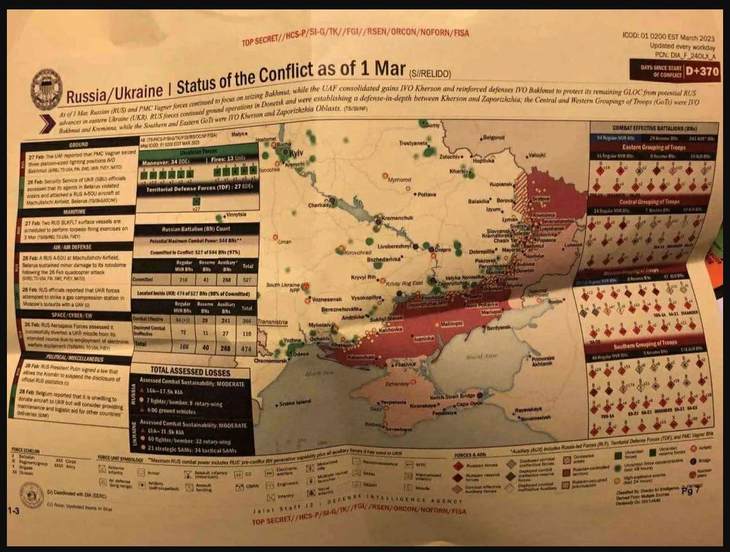Early in April, about a hundred classified documents, some with the highest classification markings, appeared in social media posts. Of course, the ones that caught everyone’s attention first were those concerning the situation in Ukraine, and US involvement there. As the story began to develop, it was learned that the documents may have made the leap to Twitter and Telegram in early April, but they had first been exposed in early March on a Minecraft community’s Discord server; see Secret Pentagon Documents Emerge on a Minecraft Players Forum, WTF?.

With the help of the media — as a side note, this may be the first time in history that major media have actively assisted law enforcement in identifying a leaker of intelligence information rather than printing it — the leaker was soon identified as a 21-year-old Air National Guard airman who worked as an IT specialist in an Air National Guard intelligence unit; see BREAKING (Video): FBI Has Arrested Air National Guardsman in MA in Connection With Classified Document Leak (Updated).
The New York Times, teaming up with the open-source intelligence (OSINT) group Bellingcat (which some claim is a CIA front), reports that the leaks that caused the identification and arrest of Airman Jack Teixeira were not his first.
The Air National Guardsman accused of leaking classified documents to a small group of gamers had been posting sensitive information months earlier than previously known and to a much larger chat group, according to online postings reviewed by The New York Times.
In February 2022, soon after the invasion of Ukraine, a user profile matching that of Airman Jack Teixeira began posting secret intelligence on the Russian war effort on a previously undisclosed chat group on Discord, a social media platform popular among gamers. The chat group contained about 600 members.
If the description by the NYT is accurate, they were highly classified as well.
The newly discovered information posted on the larger chat group included details about Russian and Ukrainian casualties, activities of Moscow’s spy agencies and updates on aid being provided to Ukraine. The user claimed to be posting information from the National Security Agency, the Central Intelligence Agency and other intelligence agencies.
Though Texeira isn’t definitively linked to the new discoveries, there is ample information provided by the person who posted the information to make a strong case they are the same person.
The leaks start within 48 hours of Russia’s invasion of Ukraine, and interestingly, they are but a synopsis of documents Teixeira claims to have seen along with their source. Some pictures seem to have been attached to some of his posts, but they have since been deleted.
The discovery of the year-old leaks indicates that it is highly likely that Teixeira made those posts, also in a Discord chat group, to impress a circle of friends and acquaintances with his access to classified information. I would speculate that the earlier leaks did not make that jump into the wild because they were just posts that couldn’t be verified. The second group of leaks was all scanned documents, which are tailor-made for social media.
There are two huge questions here. In both, Teixeira is a symptom of a larger problem. First, does the US military really care about classified information, or are the classification markings more like a brand logo that lets you show people your level of coolness by your access to classified materials? The corollary to that is that the disregard for safeguarding classified documents seems to be pervasive; I would argue that this attitude is the direct result of senior people leaking secret information to score points in the media.
The second point is that if a junior service member can print out secret documents and leave a SCIF with them, and do so repeatedly, and post the documents to social media and get away with it for over a year, then what are the chances of catching someone who is experienced and doesn’t want to get caught?













Join the conversation as a VIP Member